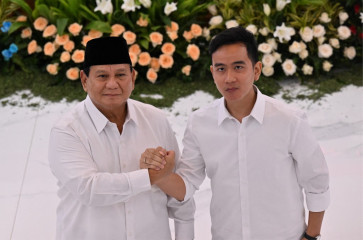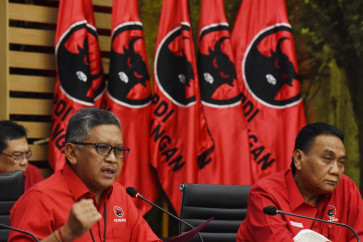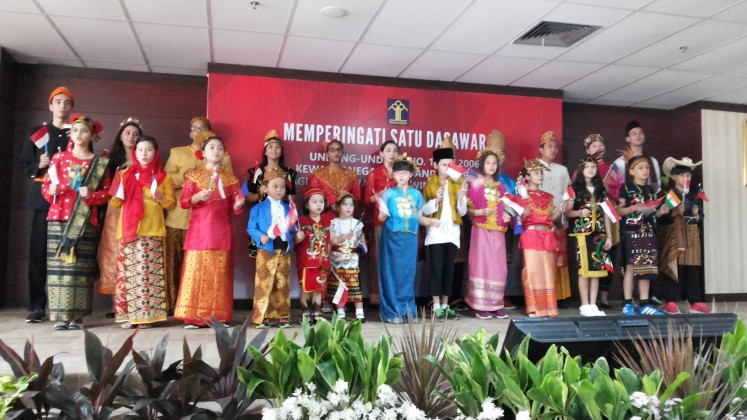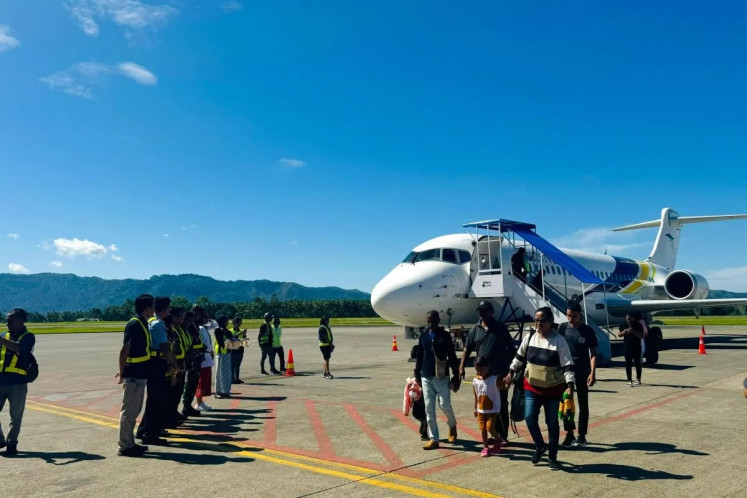The ‘strategic trinity’ of national defense
There has been intense debate on the planned purchase of 100 used Leopard 2A6 Main Battle Tanks (MBTs) from the Netherlands for the Indonesian Army
Change Size

T
here has been intense debate on the planned purchase of 100 used Leopard 2A6 Main Battle Tanks (MBTs) from the Netherlands for the Indonesian Army.
Critics, mainly politicians and civil society groups, argue that the tanks — which will cost a total of US$280 million— are unsuitable for the country’s geography, and especially for Java. They also suspect that the tanks are incongruent with the development of the Indonesian Military’s (TNI) strategic posture.
Meanwhile, supporters say the purchase is a necessary as part of developing a Minimum Essential Force and that Indonesia should also maintain strategic parity with Malaysia and Singapore, both of whom have recently procured MBTs. After all, they say, most of Indonesia’s light tanks were purchased in the 1980s.
Army chief Gen. Pramono Edhie Wibowo added that the planned purchase made economic sense, as the Army’s initial plan was to spend $280 million for 44 tanks. So the Army would get more “bang for the buck” if it could get 100 tanks for the same price — especially since the deal would be a direct government-to-government (G-to-G) contract.
Let’s put aside speculation that the House’s resistance to the purchase might be related to the elimination of arms brokers in the process or that there are ongoing turf wars between different branches of the TNI for a bigger share of the defense budget. Those comments miss the mark.
Most importantly, whether we like it or not, military reform and broader security sector reform have reached the end of their relevance as the only guiding principle in defense policy making.
While some might still believe that issues related to human rights, economic activities or the territorial command structure, are unfinished, we have to start thinking differently about a larger defense transformation process that the TNI desperately needs.
We should start seriously conceiving a process for fundamentally overhauling the defense establishment, keeping three main strategic goals in mind: democratic control, military effectiveness and defense efficiency — which I call the “strategic trinity” of defense transformation.
While much has been done in regards to the first goal in the past decade, there have been very few concrete policies issued on the other two. So, the Leopard debate allows us to look beyond the horizon and ask how the purchase could be made part of a broader policy to improve military effectiveness and defense efficiency.
Improving military effectiveness does not only mean purchasing more advanced weaponry — whether for reasons of prestige or strategic parity. It must also mean preparing the “software and brainware” side of the equation by reforming overall policies on manpower, education and training, tours of duty and promotion, as well as improving doctrinal development at all levels ranging from the strategic to the tactical.
In other words, the military institution as a whole — and the people behind the guns in particular —must be prepared to handle, manage, employ and sustain an increasingly sophisticated military platform.
Studies suggest that the rate of advance in defense technology is increasingly following its civilian counterparts, with new versions or improvements of a single platform possibly coming every five to 10 years.
This is why for example, many countries that seriously employ and maintain MBTs have either a pre-existing tank warfare doctrine, or they are striving to develop one soon enough. After all, such heavy tanks are not a panacea for military operations. Nor are they an “omni-purpose” platform. They serve specific operational goals.
Ensuring defense efficiency meanwhile speaks about the fundamental reality of scarce defense resources. In Indonesia’s case, this is not simply about more or less money for defense, but about long-term sustainability and economies of scale.
For example, critics complain about the lack of involvement of local defense industries in the planned Leopard purchase. But this is not the problem. The question is whether we can sustain a production cycle beyond the immediate needs of the TNI and whether we can create and sustain a local supply chain so that our defense development also contributes to the local economy.
Put differently, beyond ensuring “bang for the buck” and budget transparency — the Defense Ministry’s ongoing policy of encouraging G-to-G purchases should be commended here — defense efficiency is also about strategically integrating our defense economy with our civilian economy. Only then will we be able to more broadly focus on revitalizing national defense industries, beyond simply forcing the TNI to buy local.
Of course, these broad visions are incredibly complicated to implement. For example, how can we talk about technological development and sustaining economies of scale when we rarely invest in sustained high-tech research and development? How can we improve manpower policies when soldiers’ salaries and welfare remain low? How can we improve education and training when better civilian education for officers remains a non-priority?
On more urgent matters, are we supposed to sit by while our neighbors are flexing their military muscle? How can we tackle institutional matters when the country still faces immediate challenges, such as terrorism and maritime security?
These are valid questions indeed. The hardest part about fixing policy problems is not finding the best answer, but about asking the right questions.
The writer, a researcher with the Centre for Strategic and International Studies in Jakarta, is pursuing a doctorate at the Maxwell School of Citizenship and Public Affairs at Syracuse University in the US.









